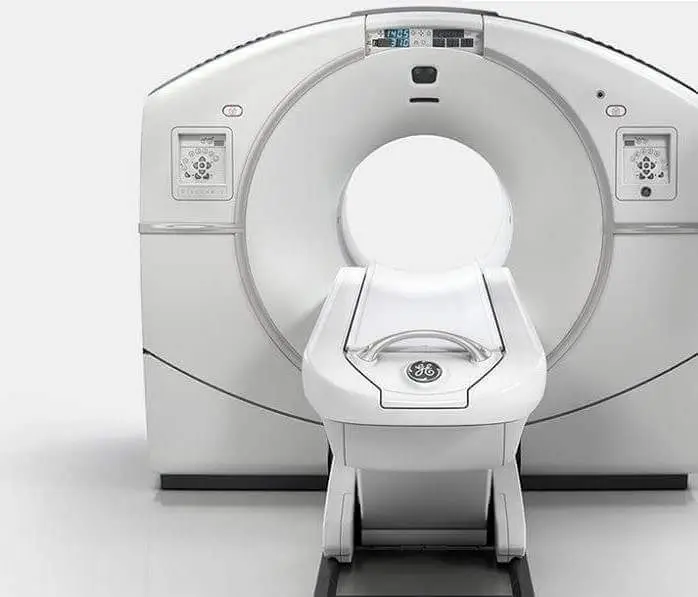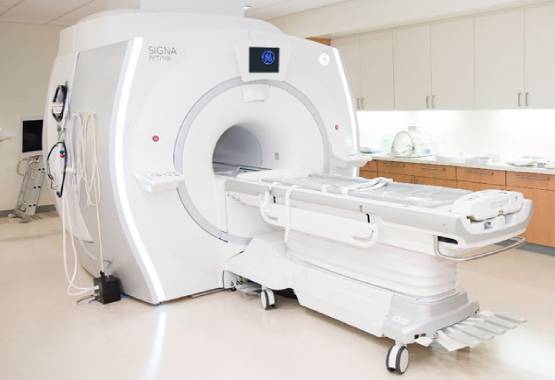


We have in-house Radiologist at MRI Chandigarh so, you will get same day report with accurate results.
We provide free pick and drop facility for our patients in tricity for MRI, CT Scan, PSMA PET Scan, DOTA PET Scan and PET Scan with cheapest price in Chandigarh.
We are equipped with World Class MRI Scan Facility at Reasonable pricing. With best in class skilled technicians.
Get the most comfortable MRI scan in Chandigarh with high quality 1.5T or 3T machines at best and affordable price.




MRI Chandigarh is your one-stop destination for advanced medical imaging and diagnostic services in Chandigarh. As one of the most trusted MRI centres in Chandigarh, we provide cutting-edge radio-imaging solutions, including both 1.5 Tesla and 3 Tesla MRI scans, at highly competitive prices—without compromising on quality.
We offer quick, accurate, and affordable MRI scans in Chandigarh with no hidden charges. Our experienced radiologists ensure timely results and, if needed, offer recommendations for further medical consultation based on your MRI report.
The cost of an MRI scan in Chandigarh varies depending on the type of scan and the diagnostic center. Prices typically start from ₹2,800 to ₹5,500. For example, 1.5 Tesla MRI scans may begin at ₹2,800, while 3 Tesla MRI scans are priced higher due to their advanced imaging capabilities. It's advisable to contact local MRI centers for precise pricing.
Preparation for an MRI scan generally involves minimal steps. For most MRI scans, you can maintain your regular diet. However, for abdominal scans, fasting for 3-4 hours prior to the procedure may be required. Wear loose-fitting, metal-free clothing, and inform your radiologist about any existing medical conditions, allergies, or implants.
Yes, MRI scans are generally considered safe as they do not use ionizing radiation. However, patients with certain implants like pacemakers should inform their doctor beforehand. It's crucial to remove all metal objects before the scan to prevent any risks associated with the MRI's strong magnetic field.
The duration of an MRI scan depends on the area being examined but typically ranges from 15 minutes to over an hour. For instance, a brain MRI may take about 30 to 60 minutes, while joint MRIs like knee or shoulder can take 15 to 45 minutes. Advanced 3 Tesla MRI machines can perform scans faster, enhancing patient comfort.
Chandigarh hosts several reputable MRI centres equipped with state-of-the-art technology and experienced radiologists. Centers like MRI Chandigarh are known for their advanced imaging services, including 3 Tesla MRI scans, and patient-centric care. It's recommended to research and choose a center that best fits your diagnostic needs.
While some diagnostic centers may allow self-referred MRI scans, it's advisable to consult with a healthcare professional to ensure the appropriateness of the scan and to provide the necessary clinical context for accurate interpretation.
Yes, certain MRI centres in Chandigarh offer complimentary pick-up and drop-off services within the Tricity area (Chandigarh, Mohali, Panchkula) to enhance patient convenience. It's best to inquire with the specific MRI center about the availability of such services. We provide free pick and drop in tricity for all scans including CT Scan & PET Scan too.
We are the leading diagnostic centre in Chandigarh providing comprehensive radio diagnostic services including MRI, CT Scan, PET Scan, Ultrasound, X-ray, Echocardiogram, ECG, and EEG at affordable rates with same-day reporting.

Experience the most comfortable and advanced MRI scans in Chandigarh with our high-field strength 1.5 Tesla and 3.0 Tesla machines. Our state-of-the-art MRI technology delivers exceptional quality diagnostic images for accurate results. Located in Sector 34, we provide the most reliable MRI services in Chandigarh Tricity at affordable rates.

Our Chandigarh diagnostic center provides world-class CT Scan facilities at the most competitive prices in the tricity region. Equipped with low-radiation dose CT scanners and operated by skilled technicians, we ensure the safest and most accurate CT scan services in Chandigarh, Mohali and Panchkula area.

Get the most affordable PET scan in Chandigarh at just Rs.16,000, the lowest price in the tricity region. Our all-inclusive package offers free pickup and drop, complimentary meals, and patient comfort amenities. Our Chandigarh PET scan center uses state-of-the-art technology for early cancer detection and treatment monitoring.

Our Chandigarh diagnostic center offers high-precision ultrasound services including 2D, 3D, and 4D scans. We use latest technology equipment at our partner diagnostic facilities across Chandigarh Sectors 34, 35, and 22. Our experienced radiologists provide accurate results for abdominal, pregnancy, thyroid, and other specialized ultrasound examinations.

Our network of partner X-ray centers in Chandigarh offers affordable digital X-ray services with instant results. Using advanced digital radiography technology, we provide high-quality bone and soft tissue imaging with minimal radiation exposure. Visit our X-ray diagnostic facilities in Sectors 34, 22, and 17 of Chandigarh for quick and reliable service.

Our diagnostic center in Chandigarh provides comprehensive cardiac and neurological testing including Echocardiography (Echo), Electrocardiogram (ECG), and Electroencephalogram (EEG). We offer the most affordable rates for these specialized tests in the Chandigarh region with reports prepared by experienced cardiologists and neurologists for accurate diagnosis.
As the leading diagnostic imaging center in Chandigarh, we provide comprehensive radiology services including MRI, CT Scan, PET-CT, Ultrasound, X-ray, Echocardiography, ECG, and EEG. Our state-of-the-art facilities are equipped with the latest diagnostic technology to deliver accurate results for patients across Chandigarh, Mohali, and Panchkula.
Visit our centers in Sector 34, Sector 22, or Sector 17 Chandigarh for the best diagnostic experience. Book your appointment today for high-quality, affordable diagnostic services in Chandigarh.
Which Scan Is Best To Detect Bone Cancer?
If you have sudden pain in your bones or notice a fracture;
if you feel a lump or swelling in the bones of your neck or the back of your throat;
If you have numbness in a specific part of your body or witness unintended absurd weight loss, Your doctor may recommend an imaging test ( called a scan) to detect any hidden cancer growing in your bones.
Doctors recommend different scans for bone cancer diagnosis, like Bone X-ray, Computed Tomography or CT, Magnetic Resonance Imaging or MRI, etc., depending on various factors like availability, expense, age, sex, overall health condition, and more.
However, they mostly talk about an MRI when discussing which scan is best to detect bone cancer.
Are you wondering why? Well, this blog shall tell you all!
MRI is the diagnostic modality that uses magnetic resonance with computer-generated radio waves to curate cross-sectional visuals of your internal organs and tissues on the computer screen. MRI can, in fact, show what other scans cannot. It can highlight your soft tissues accurately and help identify more complex and deep abnormalities.
MRI Scans take place in healthcare centers, outpatient, with no requirement of hospital stay! The scans are non-invasive and hence painless.
During an MRI scan, a radiology team shall conduct the lab operation. The team typically consists of –
Once you enter the radiology lab, the caregivers ask you to lie on the moveable table in front! You may or may not receive contrast administration intravenously to enhance the image clarity. This depends entirely on the healthcare professionals!
The table, then, takes you inside a semi-circular donut-shaped, tube-like machine for the scan. The machine has strong magnets attached to its walls, which consequently provoke the atomic nuclei in your body cells to come out of their original position. And while they move back to their location, the radio waves send signals to the computer, displaying the image on the screen.
After 45 to 90 minutes, when the radiologist can extract clear pictures of your internal anatomy, they shall stop the scanner, pull you out, and allow you to leave for work!
There are multiple reasons why doctors prefer an MRI scan for bone cancer diagnosis, and they are as follows.
MRI is the top pick by doctors when it comes to the question of which scan is best to detect bone cancer, certainly because of its diagnostic accuracy in this case! Although an MRI is not 100 percent accurate in bone cancer screening and may fail to trace a small cancerous growth, it holds a greater accuracy rate than other scanning modalities.
Despite being one of the best scans to detect bone cancer, your doctor may not recommend an MRI.
Do you know why?
Well, it is because –
Now to conclude, I must say that which scan is best to detect bone cancer is yet a debatable topic! It is because there are instances where an MRI has diagnosed a false cancerous growth or misinterpreted another bone condition as cancer.
Moreover, in some time, a traditional bone scan holds the same accuracy rate as an MRI, and sometimes, a more advanced method like PET (positron emission tomography) combined with CT or MRI may be a better option!
So, you must refer to what your doctor says specifically for your case!
If you want to book an MRI for Bone Cancer in Chandigarh, feel free to visit www.mrichandigarh.com.
The facility is clean, the staff is courteous, and the reports are provided in a timely fashion. All in all a great place for MRI scan in Chandigarh.
Staff is friendly I am happy centre is cleaned. Staff care the patient it is very good diagnostic centre
Used their service recently for my brother's MRI in Chandigarh and they had made it very convenient to book the scan and not just that they even told me what prerequisites I needed to take like fasting overnight. Will definitely use their service again.
Tried them for the first time for my MRI scan. Great service over the phone for appointment and from the technician who performed the scan. Got the report the same day by evening. Great experience overall.
I have got three scans done in the last few months at this centre. I recommend MRI Chandigarh to my family and friends for MRI scan if there is a need. For me most importantly the technician are very capable. Also overall not a bad experience at all. I would easily recommend this place to people i know.
3T MRI Scan in Chandigarh - 3T MRI centre is best because the fees of MRI is less as compare to all MRI centre in Chandigarh which is near by PGI. I done my MRI and the report is pretty accurate.
Fantastic experience. Everything is so managed here that you will not face any single problem. Staff members are also very polite. Recommended!
My 3rd PET CT has been done here. Really good services. Most of staff is very caring and polite. If you want to excellent results in same day, this PET CT is good option.
Had really great experience with Mri Scan in Chandigarh. The staff was really cooperative and helped me on my every visit. Doctors are really polite and guided me through. My scan went really smooth. Thank you for the best healthcare.